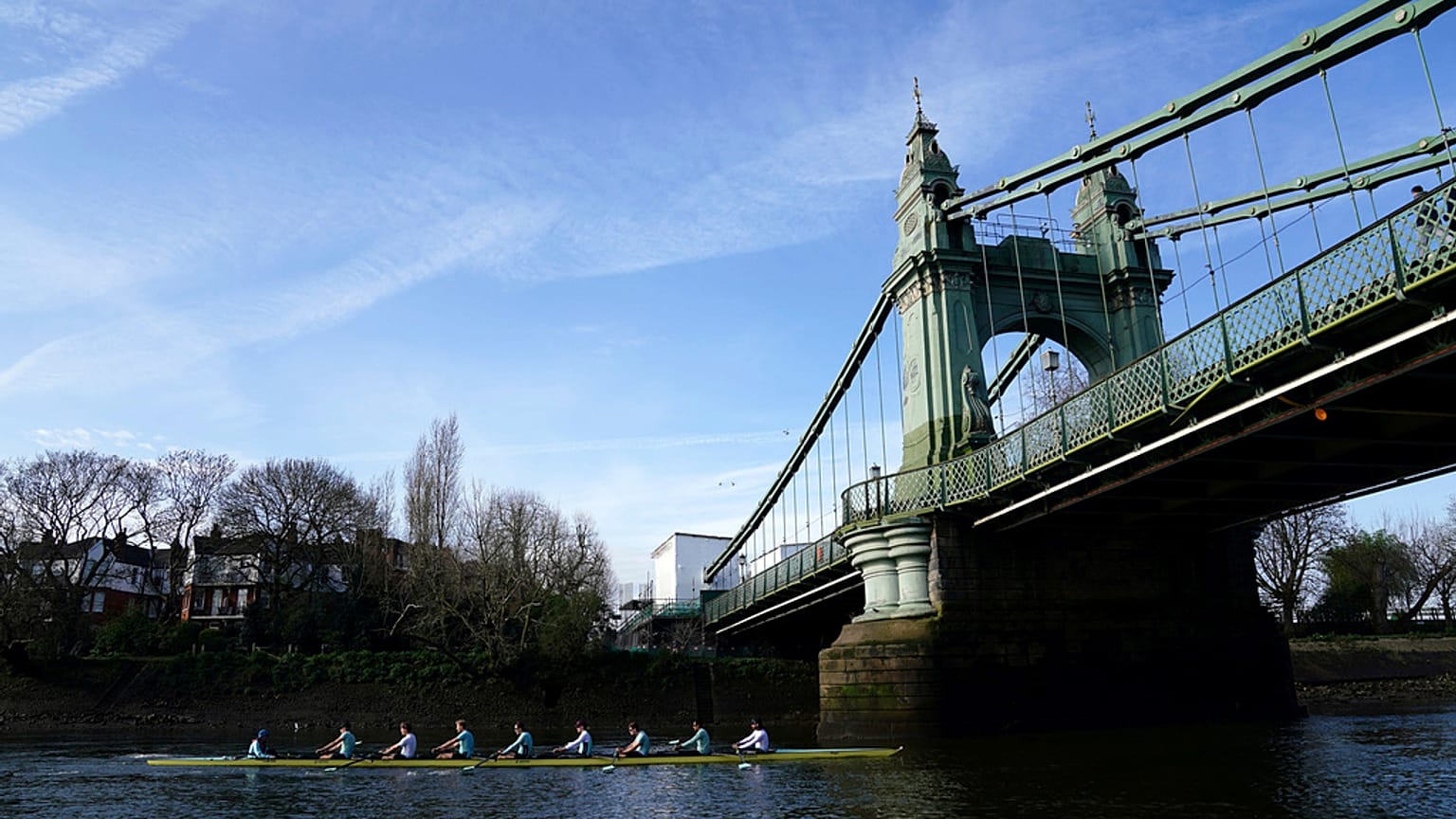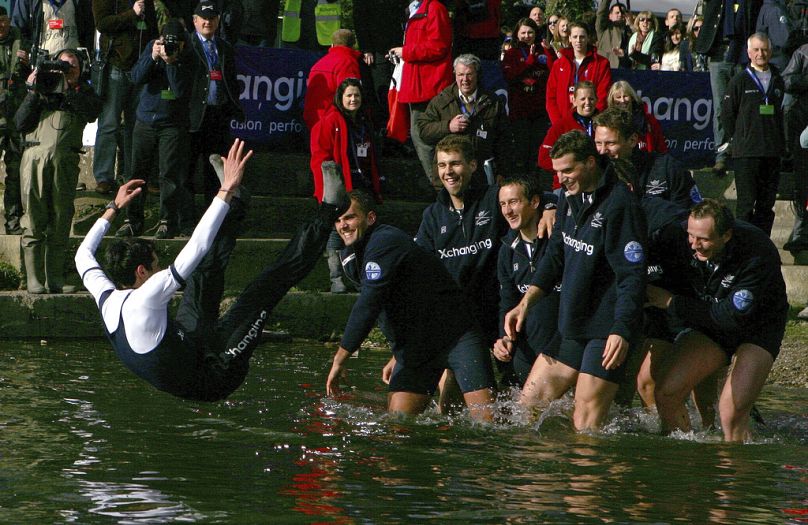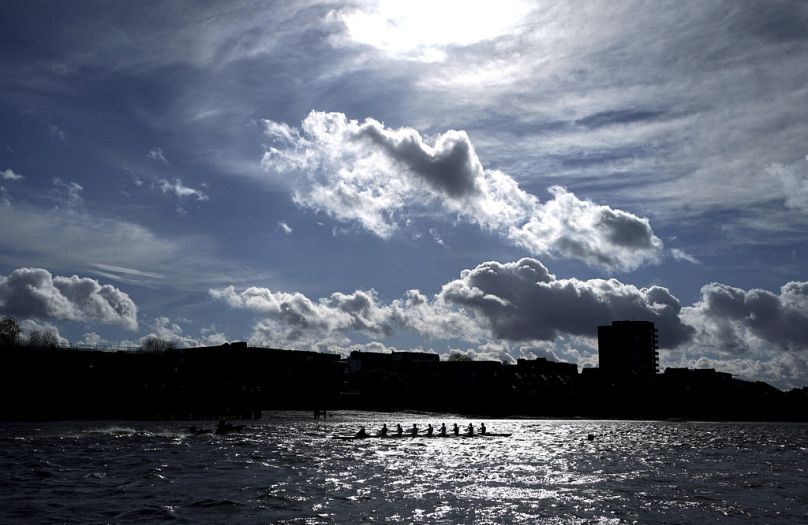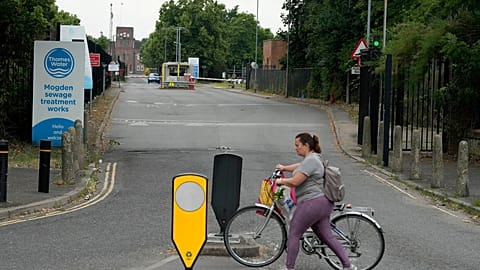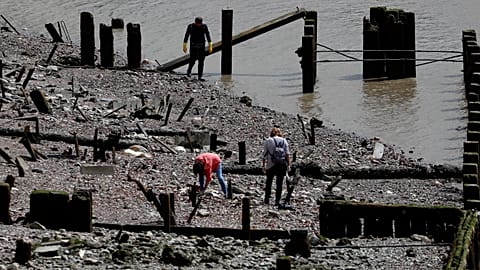The race will put even more pressure on authorities to clean up rivers across the country, including the Thames.
The coach of Oxford University's crew taking part in the upcoming, iconic Boat Race has described the pollution in London’s River Thames as a “national disgrace."
The comments come after high levels of E.coli were discovered along a section of the river in southwest London which will be used for the historic race on Saturday, 30 March.
Crew members have been warned about the risks of entering the water and advised to use a “cleansing station” at the finish area.
The pollution has also cast doubt on the post-race tradition of throwing the winning team’s cox into the water.
The company responsible for the upkeep of the Thames is facing mounting financial difficulties, something that critics say should force the company to return to state hands.
How bad is the quality of the water in The Thames?
Figures released by the country’s Environment Agency showed the level of sewage spills into England’s rivers and seas by water companies more than doubled in 2023 compared to 2022.
There has been no suggestion that the annual Boat Race between storied universities Oxford and Cambridge which dates to 1829 will not go ahead.
The women's race will precede the men's event along the same 6.8-kilometre section of the Thames.
Regardless, Oxford’s coach Sean Bowden lamented the state of the water.
“It’s a national disgrace, isn’t it?” Bowden posed. “It would be terrific if the Boat Race drew attention to it. We are very keen to play a part and we recognise we have a role and a responsibility to it.
“Why,” he added in British newspaper The Daily Telegraph, “would you want to put your kids out in that?”
Invariably, the focus has turned to whether the winning crew will dunk its cox into the Thames at the end of the race.
“If there’s a health and safety problem, I don’t think we’ll be throwing him in because we don’t want to risk that,” said Harry Glenister, who has rowed for Britain and will compete for Oxford.
“It’s just too much of a risk. We support whatever the Boat Race is saying about the conditions in the water. We just hope we’ll win and then we’ll decide.”
What is E.coli - and how dangerous can it be?
E.coli bacteria normally live in the intestines of healthy people and animals. Most strains are harmless, causing relatively brief diarrhoea. Most people recover without much incident, according to the Mayo clinic.
However, small doses of some strains - including just a mouthful of contaminated water - can cause a range of conditions, including urinary tract infection, cystitis, intestinal infection and vomiting. The most serious cases can lead to life-threatening blood poisoning.
River Action, a campaign group, said the testing locations suggested the source of pollution was from utility company Thames Water discharging sewage directly into the river and its tributaries.
Thames Water, Britain’s largest water company, is facing huge pressure to clear up the river - though it insists that the elevated levels of E.coli are not necessarily its fault.
“I would point out that E.coli has many different sources,” the company's recently appointed chief executive Chris Weston told the BBC.
“It is not just from sewage, it is also from land run-off, it is from highway run-off, it is from animal faeces. All of those things contribute to the problem and I am absolutely determined that, at Thames, we will play our part in cleaning up the problem and so the Thames is a river that people can use as they would like to everyday.”
Under a plan drawn up last summer, Thames Water was asking investors to inject close to £4 billion (about €4.68bn) into the business over the next five years.
However, on Thursday, shareholders refused to make the first payment of £500 million pounds (€585 million) without a big increase in consumers’ water bills - a demand that the industry regulator denied.
The parlous state of many of Britain's rivers, canals and coastlines is set to feature heavily in the general election, which is expected in the next few months. The main opposition Labour Party - which is way ahead of the governing Conservatives in opinion polls - has said it will make sure “new investment comes through to fix the broken sewage system without taxpayers being left to foot the bill."















